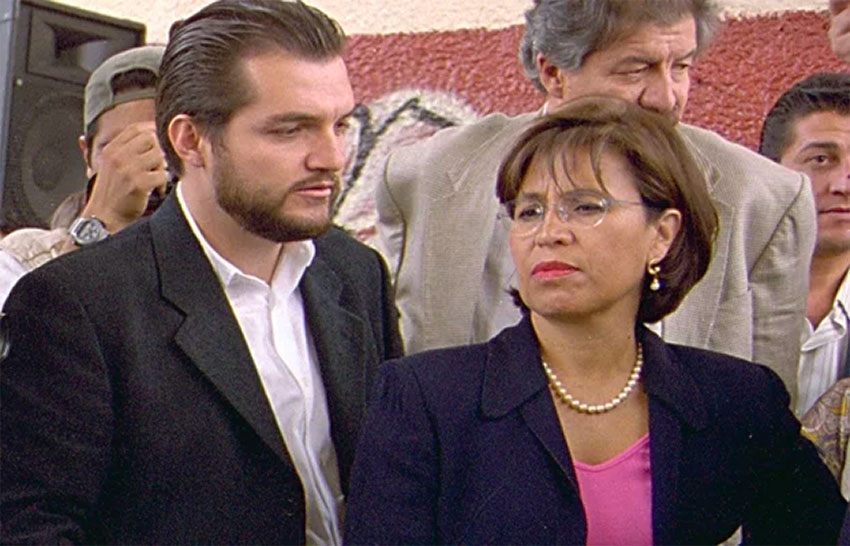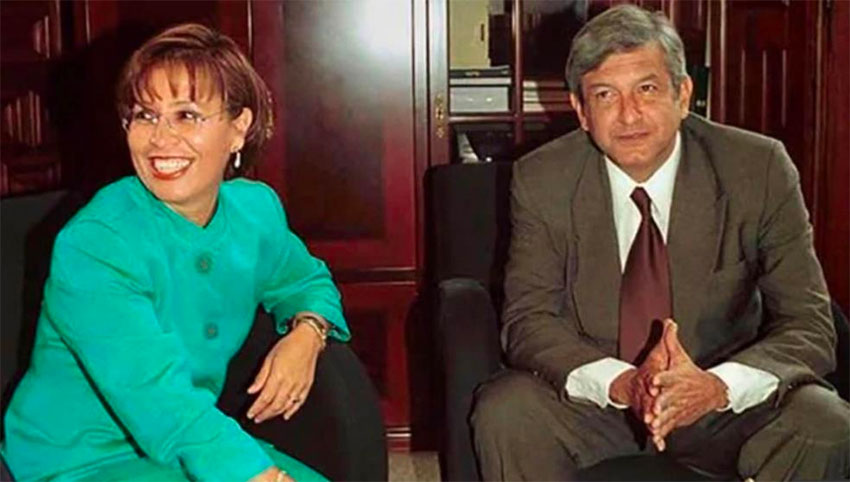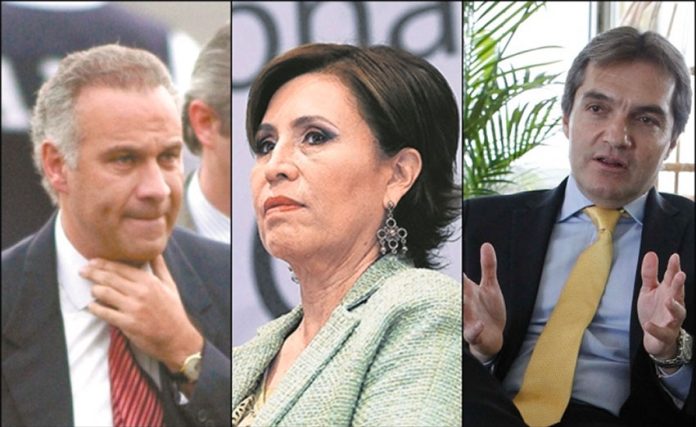The arrests of three high-profile figures who played a part in a 15-year-old scandal designed to damage then-Mexico City mayor and presidential aspirant Andrés Manuel López Obrador have triggered speculation that the president is taking revenge.
The first to fall was Juan Collado. The lawyer for former president Enrique Peña Nieto was arrested on July 9 while dining at a high-end restaurant in an affluent Mexico City neighborhood with another of his famous clients, Pemex workers’ union boss Carlos Romero Deschamps.
Collado faces charges of involvement in organized crime and money laundering and a judge ordered preventative custody as he awaits trial.
Rosario Robles was next. A judge ruled last Tuesday that the former cabinet secretary must stand trial on corruption charges related to the so-called “Master Fraud” scandal in which billions of pesos in public funds were diverted via allegedly phony contracts with universities and shell companies.
Robles too is in prison as prosecutors prepare the case against her.
Then came the arrest of Carlos Ahumada. The Argentine-Mexican businessman was detained in Buenos Aires on Friday by Argentine authorities acting at Mexico’s request.
The federal Attorney General’s Office alleges that Ahumada failed to pay income taxes of just under 1.5 million pesos (US $75,000 at today’s exchange rate).
Under the terms of an extradition treaty between Mexico and Argentina, the government has a period of two months to complete the documentation required to request the businessman’s extradition.
However, an Argentine judge ordered the release of Ahumada on Sunday, ruling that he is not required to remain in custody as he awaits the outcome of any request.
Although the high-profile arrests were for unrelated crimes, the detainees are no strangers to each other: Robles and Collado were once in a romantic relationship, while all three were involved in the so-called videoescándolos, or video-scandals, plot that was designed to damage the electoral chances of López Obrador in the 2006 presidential election.

In March 2004, the broadcaster Televisa aired footage secretly filmed by Ahumada which showed him handing over a wad of cash – US $45,000 – to René Bejarano, a Democratic Revolutionary Party (PRD) politician and close confidante of López Obrador. Bejarano served as the now-president’s personal secretary during the first two years of his tenure at the helm of the Mexico City government.
Other videos showing PRD politicians receiving or asking for cash from Ahumada were also broadcast by Televisa, while López Obrador’s finance secretary in his Mexico City administration, Gustavo Ponce, was filmed gambling in a Las Vegas casino.
The implication was that if people close to mayor López Obrador were corrupt, he was too.
According to Ahumada, Collado played an important role in having the videos aired on Televisa.
Bejarano said that Robles – who preceded López Obrador as mayor of Mexico City and served as national president of the PRD from 2002 to 2003 – ordered him to receive the money from her then lover Ahumada to finance PRD campaigns in the 2003 mid-term federal elections.
López Obrador, who represented the PRD in the 2006 election but narrowly lost to Felipe Calderón, accused former president Carlos Salinas de Gortari and National Action Party (PAN) senator Diego Fernández de Cevallos of being the architects of the video-scandals plot.
According to Ahumada, the two men paid 68 million pesos for the videos. The businessman fled to Cuba after they were screened but was extradited to Mexico in April 2004 and spent the next three years in jail.
In 2014, Ahumada initiated legal action against the PRD, claiming that the party owed him more than 500 million pesos because it never paid back the “loans” he provided. After his arrest, Ahumada said in an interview that Robles threatened to do “everything judicially and extrajudicially possible to destroy” him and his family if he continued to insist on cashing a promissory note issued by the PRD.
After yet more damaging footage surfaced in late 2005, López Obrador – who by that time was a presidential candidate – said the videos had nothing to do with him.
“You are never going to see me in a video where I am receiving money or someone is receiving money in my name,” López Obrador said in November 2005. “It has been demonstrated that I am totally clean.”
Fast forward to August 2019, and some political experts say that the three recent arrests look like an act of revenge on the part of the president.
José Antonio Crespo, a professor at the Center for Research and Teaching in Economics, said it appears that López Obrador has adopted an old Institutional Revolutionary Party (PRI) tactic of going after past or present political enemies using the long arm of the law.

“If [the arrests] – which it just so happens are of people with whom López Obrador has a score to settle – remain as isolated cases, it will be the same scheme that we saw in the PRI years,” he said.
The PRI ruled Mexico uninterruptedly for more than 70 years until it was defeated in the 2000 presidential election by the PAN, which held power for the net 12 years.
Peña Nieto led the PRI back to power in 2012 and Robles reemerged as a force on the political scene, serving as secretary of social development, and later secretary of agrarian development and urban planning.
José Santillán, a professor at Tec. de Monterrey, also charged that the arrests appear to be an act of revenge given that Collado, Robles and Ahumada were all involved in the video-scandals.
He said that Robles’ case is especially suspicious because the judge who remanded Robles in custody, Felipe de Jesús Delgadillo Padierna, is the nephew of PRD lawmaker Dolores Padierna, who is married to René Bejarano.
PAN national president Marko Cortés described the arrest of Robles and Ahumada as revenge and political persecution by the López Obrador administration.
The president, as expected, rejects the accusations.
López Obrador said last week that he gave no order to arrest Robles, while yesterday he rejected any suggestion that the detention of Ahumada was an act of revenge.
“He himself confessed . . . that he met with [Carlos] Salinas and Diego Fernández de Cevallos to damage me, that’s not an invention. However, I don’t have any intention to take revenge on anyone . . .”
Source: El Universal (sp), Político (sp), Milenio (sp)
